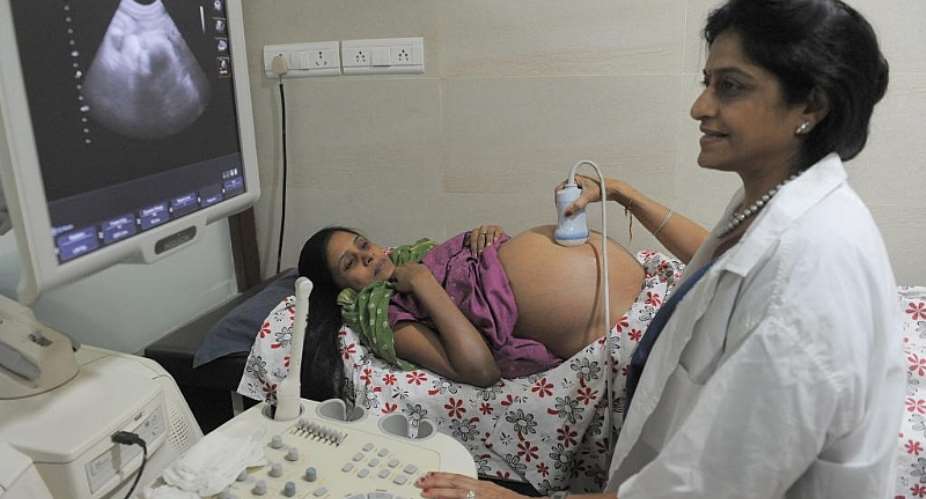The Indian government is on Thursday expected to vote a bill into law that would ban commercial surrogacy. New Delhi says the legislation is aimed at dismantling the booming "rent-a-womb" industry that is estimated to be worth some 3.3 billion euros annually.
Parliamentary debate on the Surrogacy Regulation Bill, 2019 ran into a second day Wednesday, with health minister Harsh Vardhan deploring that trafficked women were passed off as suitable surrogates.
He also argued that 2,000 “foreign babies” took birth every year in India and that many of an estimated 3,000 fertility clinics were believed to be engaged in unethical practices.
“In the absence of regulation, India has unfortunately emerged as a surrogacy hub for couples from different countries,” said Harsh Vardhan, who introduced the bill in July. A month later, it was approved by the elected lower house.
India opened up to commercial surrogacy in 2002. But Prime Minister Narendra Modi's government sees fertility clinics as baby factories for the rich that cheat impoverished women into signing contracts they do not fully understand.
The draft law allows surrogacy for Indian couples married for at least five years, or for female relatives to help out provided the paperwork is legitimate. The law prohibits divorced women, same-sex partners, lesbians or homosexuals from raising families through outsourcing.
Hefty penalties
The controversial bill also bans advertising commercial surrogacy and sale or import of human embryo for the purpose. Violators of the law would face a prison term of 10 years plus a fine of one million rupees or 12,500 euros and other penalties.
Lawmakers such as Rajeev Gowda have asked Modi's administration to remove draconian provisions from the draft law.
Many of them argued women could also be coerced to become surrogate mothers in families in need of bloodline babies.
“We are living in 21st century India and many people who may be single, who may be divorced may also desire to have children using the surrogacy method and so why should they be prevented,” said Gowda, an MP from the main opposition Congress party.
Gay rights activists; legal and healthcare experts are also up in arms, calling the bill regressive.
“Why is the government saying that only certain kinds of people can be biological parents? Why are they saying only a particular mode of parenthood is something that is legitimate?” Supreme Court lawyer Karuna Nundi said during a televised debate.
“Is this something that is a compelling state interest? If it is not a compelling state interest then why is the government involved at all?”
An army of physicians and cheap technology has seen India rent-a-womb industry boom. According to some estimates, surrogates can be paid around 5,000 euros – in a country where average monthly earnings are around 133 euros.
The cost of importing a surrogate baby from India is five times less than the sum charged in the US.





 Lay KPMG audit report on SML-GRA contract before Parliament – Isaac Adongo tells...
Lay KPMG audit report on SML-GRA contract before Parliament – Isaac Adongo tells...
 Supervisor remanded for stabbing businessman with broken bottle and screwdriver
Supervisor remanded for stabbing businessman with broken bottle and screwdriver
 NDC watching EC and NPP closely on Returning Officer recruitment — Omane Boamah
NDC watching EC and NPP closely on Returning Officer recruitment — Omane Boamah
 Your decision to contest for president again is pathetic – Annoh-Dompreh blasts ...
Your decision to contest for president again is pathetic – Annoh-Dompreh blasts ...
 Election 2024: Security agencies ready to keep peace and secure the country — IG...
Election 2024: Security agencies ready to keep peace and secure the country — IG...
 People no longer place value in public basic schools; new uniforms, painting wil...
People no longer place value in public basic schools; new uniforms, painting wil...
 'Comedian' Paul Adom Otchere needs help – Sulemana Braimah
'Comedian' Paul Adom Otchere needs help – Sulemana Braimah
 Ejisu by-election: Only 33% of voters can be swayed by inducement — Global InfoA...
Ejisu by-election: Only 33% of voters can be swayed by inducement — Global InfoA...
 Minority will expose the beneficial owners of SML, recover funds paid to company...
Minority will expose the beneficial owners of SML, recover funds paid to company...
 Prof. Opoku-Agyemang has ‘decapitated’ the NPP’s strategies; don’t take them ser...
Prof. Opoku-Agyemang has ‘decapitated’ the NPP’s strategies; don’t take them ser...
